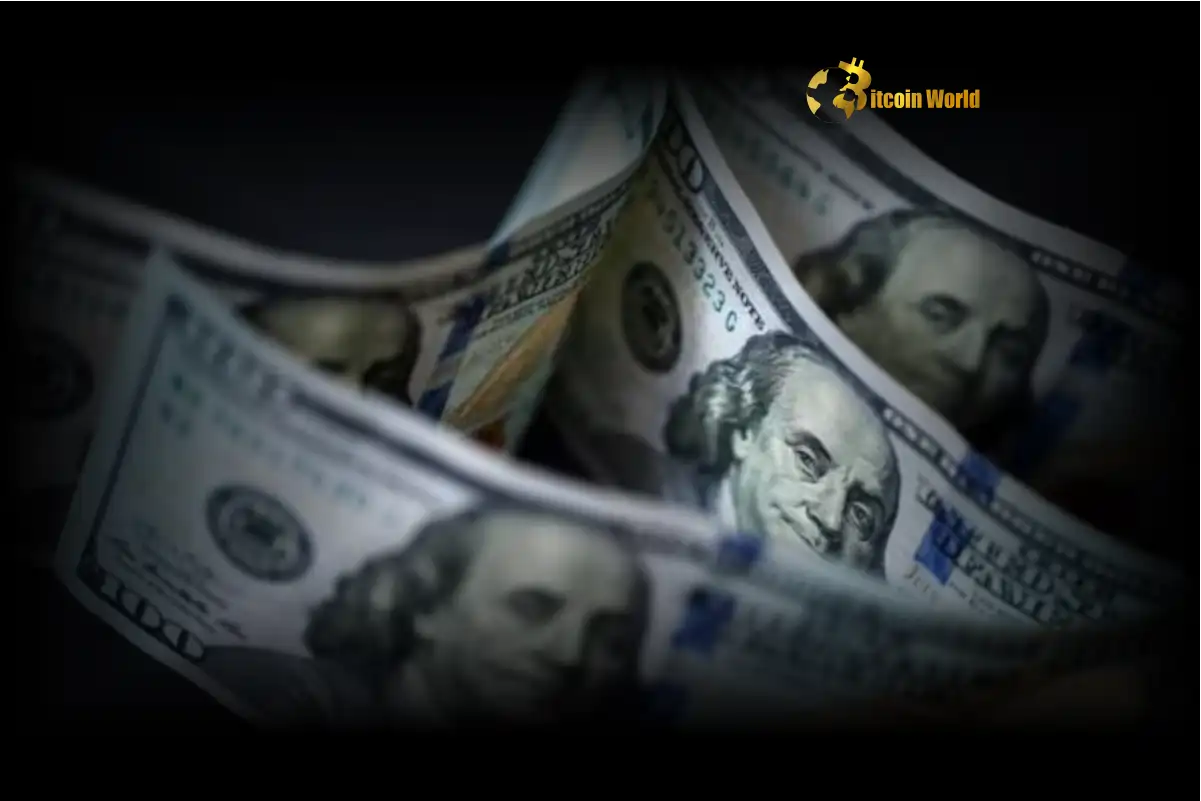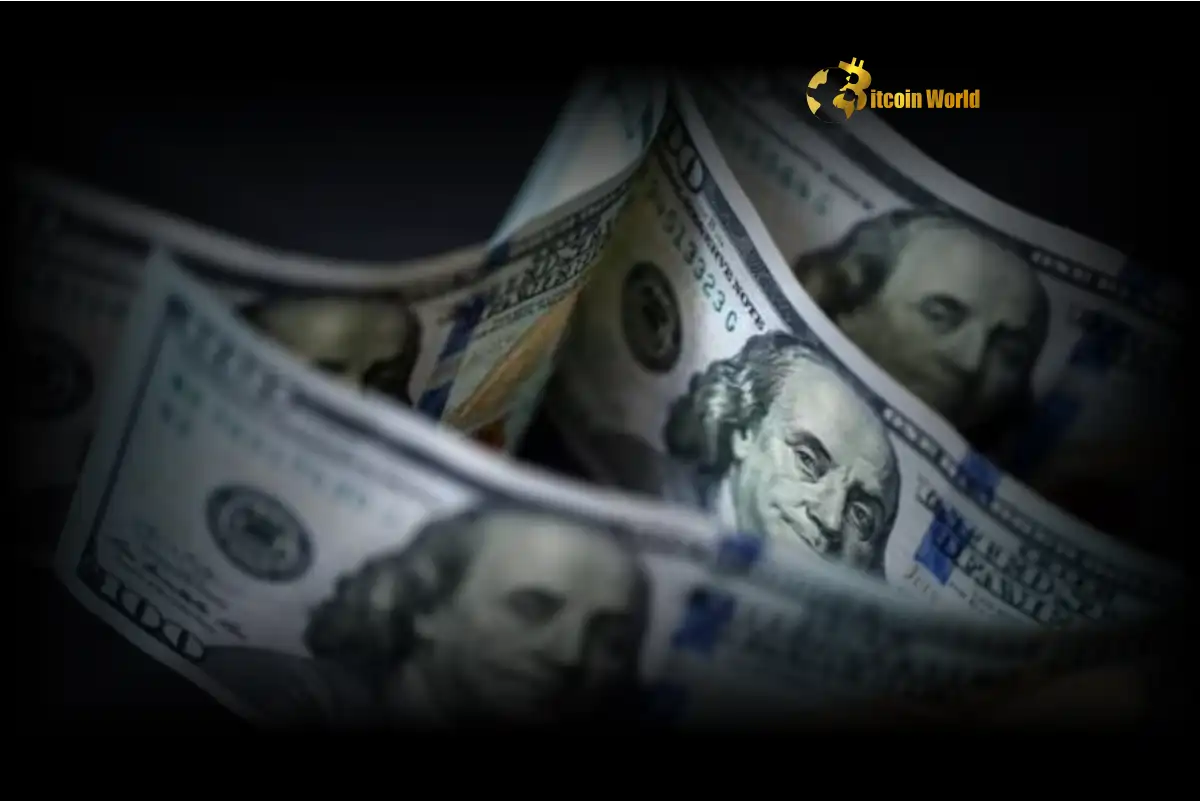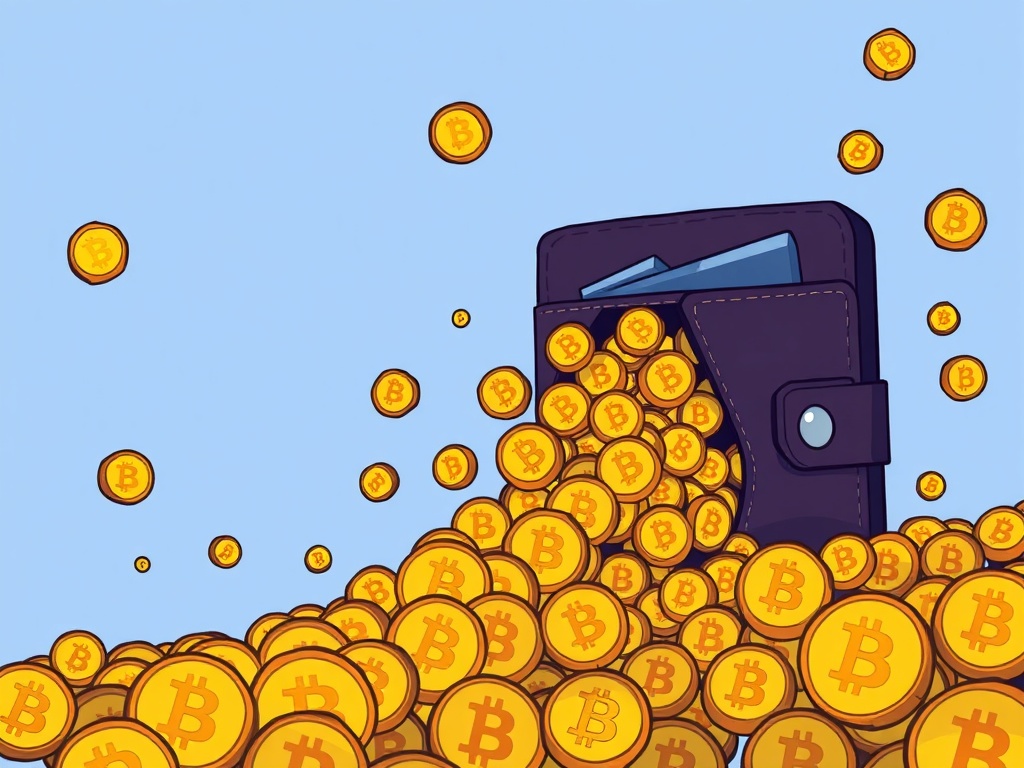BitcoinWorld

US Dollar Policy: Citi Reveals Surprising Outlook on Weak Dollar Strategy
Understanding the direction of the US dollar policy is crucial for anyone involved in global markets, including those in the cryptocurrency space. The dollar’s strength or weakness can significantly impact everything from commodity prices to investment flows and, yes, even the volatility of digital assets like Bitcoin. Recently, financial giant Citi shared their perspective on where they see the US administration heading with its currency approach, offering a potentially surprising outlook.
Understanding the ‘Weak Dollar Policy’ Concept
Before diving into Citi’s analysis, let’s quickly touch on what a ‘weak dollar policy‘ actually means. Historically, some countries have sought to deliberately lower their currency’s value relative to others. Why would they do this?
- Boosting Exports: A weaker currency makes a country’s goods cheaper for foreign buyers, potentially increasing export volumes.
- Discouraging Imports: Conversely, it makes imported goods more expensive, encouraging domestic consumption.
- Stimulating Inflation: In times of low inflation or deflation, a weaker currency can help push prices up by making imports costlier.
- Improving Competitiveness: It can give domestic industries a competitive edge on the global stage.
However, pursuing a deliberately weak dollar policy is complex for the United States due to the dollar’s role as the world’s primary reserve currency and its importance in global trade and finance. It can also lead to unintended consequences, such as higher import costs fueling inflation or eroding the value of foreign holdings of dollar-denominated assets.
Citi’s Analysis: Why a Weak Dollar Strategy is Unlikely
Citi’s recent assessment suggests that despite potential short-term fluctuations, the current US administration is unlikely to actively pursue a policy aimed at significantly weakening the dollar. Their Citi analysis points to several key factors underpinning this view:
What Factors Suggest Stability Over Weakness?
Citi highlights structural reasons why a weak dollar policy is not the probable path:
- Focus on Inflation Control: The primary economic challenge has been managing inflation. A weaker dollar makes imports more expensive, directly counteracting efforts to bring down price levels. The administration and the Federal Reserve’s goals are more aligned with price stability, which doesn’t favor a deliberately weaker currency.
- Global Reserve Status: The US dollar’s role as the dominant global reserve currency provides significant advantages, including lower borrowing costs for the US government and financial institutions. Actively weakening the dollar could potentially jeopardize this status over the long term, undermining confidence in its stability and reliability.
- Geopolitical Considerations: In an uncertain global environment, a strong and stable dollar is often seen as a sign of economic strength and a safe haven asset. Pursuing weakness could send the wrong signal to international partners and adversaries alike.
- Limited Political Appetite: While a weaker dollar might appeal to certain export-oriented industries, the broader economic implications, particularly the inflationary pressure, make a deliberate weak dollar policy politically challenging and unlikely to gain broad support within the administration or Congress.
Essentially, Citi’s view is that the benefits of maintaining dollar stability and controlling inflation outweigh the potential advantages of a weaker currency strategy at this time.
Implications for the Forex Market Outlook
If Citi’s perspective holds true, what does this mean for the forex market outlook? A scenario where the US administration is not actively seeking a weaker dollar suggests a few potential outcomes for currency traders and global investors:
How Might This Shape Currency Dynamics?
Here’s what could unfold:
- Reduced Policy-Driven Volatility: The forex market is influenced by many factors, but explicit government currency intervention or policy signaling can be a major driver of volatility. If the US government steps back from actively trying to manipulate the dollar’s value, one source of significant uncertainty is reduced.
- Focus Shifts to Fundamentals: Without a policy push for weakness, market attention will likely remain firmly on economic fundamentals. This includes interest rate differentials set by the Federal Reserve versus other central banks, economic growth prospects in the US compared to other regions, and geopolitical stability.
- Relative Strength Persistence: Given the US economy’s size and the dollar’s safe-haven status, a lack of official weakening policy means the dollar’s relative strength against other currencies will continue to be determined primarily by these underlying economic and market forces. The dollar might still weaken if, for example, other economies grow faster or their central banks hike rates more aggressively, but it wouldn’t be due to a deliberate US strategy.
- Potential for Stability: While volatility is inherent in forex, the absence of a weak dollar mandate from the top could contribute to periods of relative stability for the USD against major pairs, allowing market participants to focus on established economic indicators.
This outlook suggests that forecasting dollar movements will continue to rely heavily on macroeconomic data and central bank commentary, rather than anticipating explicit currency policy shifts from the White House or Treasury.
Challenges and Benefits: Weighing Different Dollar Scenarios
Let’s consider the broader challenges and benefits associated with different dollar scenarios, even if a deliberate weak dollar policy is deemed unlikely by Citi. Understanding these helps frame the importance of the US dollar policy discussion.
What Are the Trade-offs?
Challenges of a Strong Dollar:
- Can make US exports more expensive, potentially hurting domestic industries that rely on international sales.
- Can make it harder for multinational US companies to convert foreign earnings back into dollars.
- Can increase the burden of dollar-denominated debt for emerging market economies.
- Can contribute to deflationary pressures by making imports cheaper.
Benefits of a Strong Dollar:
- Makes imports cheaper for US consumers and businesses, helping to control inflation.
- Increases the purchasing power of US tourists traveling abroad.
- Attracts foreign investment seeking safety and stability in dollar assets.
- Reinforces the dollar’s status as a global reserve currency and safe haven.
Challenges of a Weak Dollar (If pursued):
- Increases the cost of imports, potentially fueling inflation.
- Reduces the purchasing power of US consumers and businesses buying foreign goods.
- Could potentially undermine confidence in the dollar’s long-term stability.
- Makes foreign travel more expensive for US residents.
Benefits of a Weak Dollar (If pursued):
- Makes US exports cheaper and more competitive globally.
- Increases the dollar value of foreign earnings for US multinational companies.
- Can ease the burden of dollar-denominated debt for other countries.
- Can help stimulate domestic economic activity by making imports less attractive.
Citi’s assessment implies that the current administration is prioritizing the benefits of stability and inflation control associated with a non-weakening policy over the potential export advantages of a weaker currency.
Crafting Your Currency Strategy: Actionable Insights
Given Citi’s Citi analysis and the prevailing economic landscape, how should individuals and businesses think about their currency strategy?
What Steps Can You Take?
- Stay Informed on Fundamentals: Since policy-driven weakening is less likely, pay close attention to interest rate decisions by the Federal Reserve and other major central banks, inflation data, GDP growth reports, and employment figures. These will be the primary drivers of dollar value.
- Monitor Geopolitical Events: The dollar’s safe-haven status means it can strengthen during times of global uncertainty. Keep an eye on international political and economic developments.
- Consider Diversification: For investors, including those in crypto, understanding that the dollar’s trajectory is linked to broader economic health is key. Diversification across different asset classes and potentially different currencies (though this is more complex) can help manage risk.
- Evaluate Hedging Needs: Businesses with significant international transactions should evaluate their exposure to currency fluctuations and consider hedging strategies if volatility poses a risk to their operations or profitability.
- For Crypto Investors: Recognize that a strong dollar can sometimes correlate with tighter global liquidity conditions, which can put pressure on risk assets like cryptocurrencies. Conversely, periods where the dollar is stable or weakening due to external factors (not policy) might coincide with increased risk appetite. Citi’s view suggests the former scenario (strong dollar due to fundamentals) is more probable than the latter (weak dollar due to policy).
Ultimately, a robust currency strategy in this environment relies on understanding macroeconomic trends and their likely impact on the dollar, rather than anticipating a deliberate policy shift towards weakening the currency.
Conclusion: Stability Over Weakness – Citi’s Verdict
In summary, Citi’s recent analysis offers a clear perspective: the likelihood of the US administration actively pursuing a ‘weak dollar policy‘ is low. Their reasoning centers on the priority of controlling inflation, maintaining the dollar’s crucial role as a global reserve currency, and the lack of significant political impetus for such a move at this time. This outlook has significant implications for the forex market outlook, suggesting that fundamental economic factors and interest rate policies will remain the dominant forces shaping the dollar’s value. For investors, businesses, and even those tracking the crypto market, this means focusing on macroeconomic indicators and developing a robust currency strategy based on these fundamentals, rather than betting on a government-engineered decline in the dollar’s value. While currency markets are always subject to volatility, Citi’s Citi analysis provides a valuable insight into one less likely source of future dollar movement – deliberate policy weakening.
To learn more about the latest Forex market trends, explore our article on key developments shaping the US Dollar liquidity.
This post US Dollar Policy: Citi Reveals Surprising Outlook on Weak Dollar Strategy first appeared on BitcoinWorld and is written by Editorial Team





